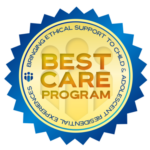You might struggle to picture your child experimenting with drugs, but young adults are susceptible to substance misuse – and when adolescents get addicted, the consequences can be far-reaching.
According to recent research from the National Institute on Drug Abuse, adolescents aged 12 to 15 are more likely to become dependent on prescription drugs, opioids, methamphetamines and marijuana after trying them for the first time. What makes early adolescence such a sensitive time, and is there anything you can do to prevent your son from heading down this harmful path?
The Teen Years Are a Crucial Time for Preventing Substance Misuse
The sooner teens start sampling different drugs, the more they’ll increase their chances of developing a substance misuse disorder later in life. Because drugs change the way the brain experiences pleasure and reward, a casual user can quickly progress from tolerance to dependence to a full-fledged addiction. If you are responsible for helping raise a young man, you can play a vital role in reducing his risk of having a substance use disorder and the various mental and physical health issues that accompany it.
Early adolescence can be a demanding time for teens. Transitioning from middle school to high school may bring an overwhelming set of challenges, including unknown social and academic settings. This shift coincides with many teenagers’ initial exposure to recreational drug use, perhaps increasing their likelihood of trying drugs to fit in. Children struggling with depression during the adolescent years may also feel tempted to self-medicate with various drugs to find relief from their symptoms.
Drugs Cloud Judgment and Rational Thought
For many young people, the teen years are a time to start challenging authority figures. While a bit of rebellion is part of growing up, a desire to push boundaries might also make adolescents choose to explore drug use. The good judgment you’ve instilled in your son could falter when he experiences peer pressure to smoke marijuana or try meth from friends he admires.
If you suspect your son is experimenting with substance abuse, don’t brush it off by assuming it’s a phase he will soon outgrow. Often, adolescents who use drugs struggle academically and can also have trouble maintaining healthy relationships – problems that can follow them long into adulthood.
A Parent’s Role in Helping Young Adults Learn to Say No
As children grow into adults, they may start trying to hide things from you or assert their independence by rebelling. While these characteristics are hallmarks of adolescence, they could also raise concerns about a budding substance abuse problem. Ask your teen son plenty of questions about how he spends time with his friends, and talk to his teachers about how he’s performing in school.
If you have reason to worry that your child may have a substance use disorder and a co-occurring mental health challenge like depression, talk to a professional therapist. You may also wish to start educating yourself about young adult addiction treatment facilities like ARCH Academy to get your son the focused help he needs to stop using dangerous drugs. Contact us today to learn more about our single-gender programming for young men aged 14 to 18.




